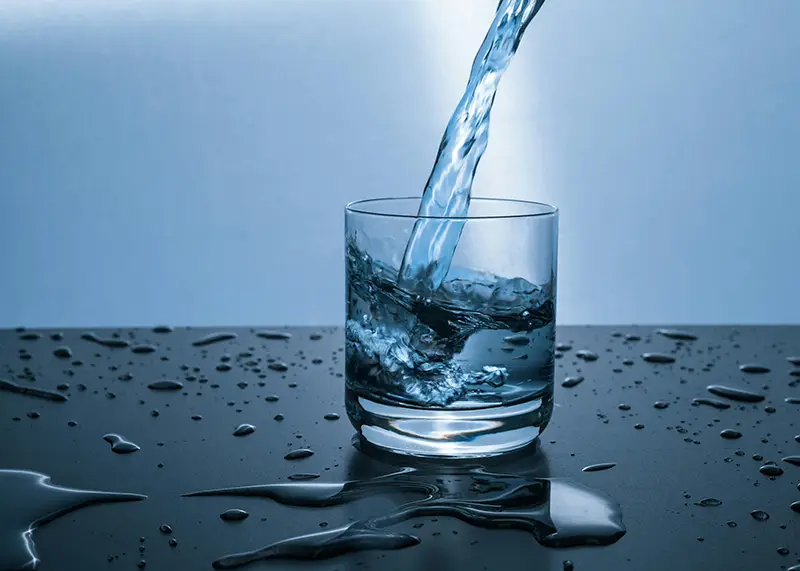The Importance of Hydration During Menstruation
Introduction
Hydration is a crucial pillar of daily well-being, but it becomes even more important during menstrual periods. During this phase, a woman’s body undergoes a series of hormonal changes that can be accompanied by various, often uncomfortable, symptoms. Adequate hydration can play a significant role in managing and reducing these symptoms, thus highlighting its importance for maintaining physical and mental balance during this time.
Hydration and the Menstrual Cycle
The relationship between hydration and the menstrual cycle is complex and multifaceted. During menstruation, the body can lose a significant amount of fluids, not only through bleeding but also due to hormonal fluctuations, which can affect water retention and encourage dehydration.
Effects of Dehydration During Menstruation
Impact on Physical Health: Dehydration during menstruation can worsen symptoms such as cramps, bloating, and headaches. These symptoms are often the direct result of fluid and electrolyte loss, which are crucial for proper muscle and nerve function. Without adequate hydration, the body struggles to maintain these functions, which can intensify pain and discomfort.
Read More: Pelvic Pain Relief Through Exercise: Complete Guide and Home Exercises
Consequences on Mental Well-Being: Hydration also affects the brain. Even mild dehydration can lead to concentration problems, mood issues, and fatigue. During menstruation, where many women already experience increased emotional sensitivity, dehydration can exacerbate these feelings, making everyday challenges harder to overcome.
Benefits of Adequate Hydration
Improvement in Physical Health: Drinking enough water helps to reduce the viscosity of the blood, thus facilitating its flow and possibly reducing the intensity of cramps. Hydration also helps to regulate body temperature, reduce bloating, and improve digestion, contributing to overall comfort during menstruation.
Boost for Mood and Mental Well-Being: Proper hydration can significantly improve mood and mental clarity. It contributes to a general sense of well-being, enabling better management of the typical emotional fluctuations of this period.
How to Hydrate Properly?
It is recommended to drink about 2 liters of water a day, but this need can vary depending on physical activity, climate, and the intensity of the menstrual period. It is important to listen to your body and adjust accordingly. Water-rich foods, such as fruits and vegetables, and hydrating drinks, such as herbal teas and infused waters, can also contribute to daily hydration intake.
Practical Tips for Optimal Hydration
A good strategy is to integrate reminders to drink water throughout the day, for example, using an app or placing a visible water bottle at your workplace. Recognizing the signs of dehydration is also crucial; these include dark urine, excessive thirst, and dry skin.
Myths and Realities About Hydration
There are many myths surrounding hydration, including the idea that drinking too much water can cause excessive bloating during menstruation. In reality, adequate hydration can help minimize bloating by promoting proper function of the digestive and circulatory systems.
Conclusion
In summary, hydration is a key element of health and well-being, especially during menstruation. Good hydration helps alleviate the unpleasant symptoms associated with menstruation, improves physical and mental well-being, and supports the body in its vital functions. Adopting healthy hydration habits is therefore a step towards better quality of life during this period.
FAQ
How much water should I drink during my period?
It is recommended to aim for about 2 liters of water per day, but this can vary based on individual needs and external conditions.
Do beverages like coffee or tea count towards my fluid intake?
Yes, but in moderation, as caffeine can have a diuretic effect. Prefer water, herbal teas, and infused waters for optimal hydration.
How can I tell if I am properly hydrated?
A good indicator is the color of your urine; it should be light-colored. Other signs include good energy levels and the absence of dehydration symptoms.
Is it possible to drink too much water?
Yes, this is called hyponatremia, but it is rare and usually occurs from consuming excessive amounts of water in a very short period.
What foods are good for hydration during your period?
Fruits and vegetables with high water content, such as cucumbers, watermelon, oranges, and strawberries, are excellent for contributing to hydration.







